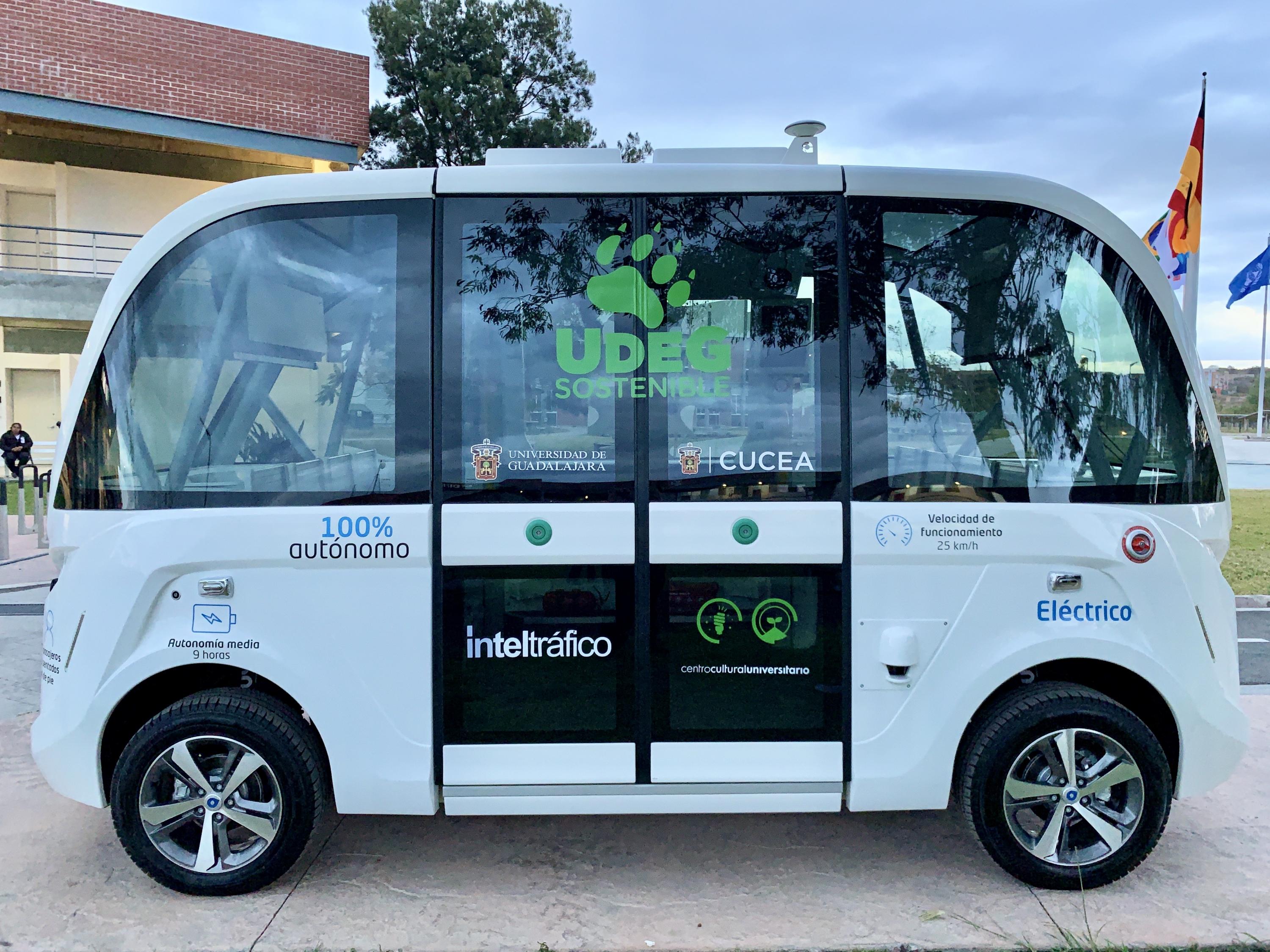-
Autonomous Electric Vehicles with Sustainable Energy
“Smart and sustainable urban mobility"
Innovation Center in Smart Cities
CUCEA Smart Campus
In the year in which the University of Guadalajara begins its energy transition program for climate change mitigation, CUCEA through its Center for Innovation in Smart Cities develops its research program in smart and sustainable mobility. One of the main challenges in cities today is the mobility offer that reconciles with the environment, productivity, health, equal opportunity, and innovation. In this way, this year begins with the first project that integrates a pilot with the first electric public transport vehicle in Latin America, which is driven autonomously (does not require a driver) because it is a qualified unit level 4/5 by the SAE (Society of Automotive Engineers). This research project will redefine mobility in cities by creating new, more efficient and environmentally sustainable service models.
In terms of research and education, the autonomous electric vehicle on the University Campus offers opportunities in:
- Simulations and tests of autonomous vehicles governed by Artificial Intelligence
- Communication and IoT platforms together with their analytics
- Improvement of physical infrastructure such as roads, parking lots, stops, among others; Integrating new solutions and patents for the cities of the future.
- Energy management and location of distribution networks, charging stations, Smart Grids.
- At the social level with these technological solutions associated with psychological and anthropological perceptions for the mobility of the future
- Development of mobile apps and services based on analytics and proposals for new services.
- Development of new business models for the transport of the future
- Cybersecurity
- Local, national and international cooperation
To develop research and training of the talent of the future at present, the project has been divided into three stages during 2020:
1. ** Campus Validation: ** Where it will be sought how to guarantee the safety, infrastructure integration and development of the research topics mentioned above for the integration of this technology into our environment with social and energy impact. At this stage there is a strong multidisciplinary research and development work with an impact on Smart Cities with a program backed by the Center for Innovation in Smart Cities.
2. ** Showroom: ** Where the infrastructure will already be available to show the operation of the autonomous mobility platform in scenarios similar to those of a city in Mexico, with several tests in an indoor circuit on the campus that allow the platform to be socialized . At this stage, educational content based on the experience acquired will be integrated and research will continue to be sustained.
3. ** Validation in the City: ** In collaboration with the government, adapt a first real route connecting the campus with the station of line three of the light rail that is 4.2 km away. In the process, the research works are extended like talent training.
